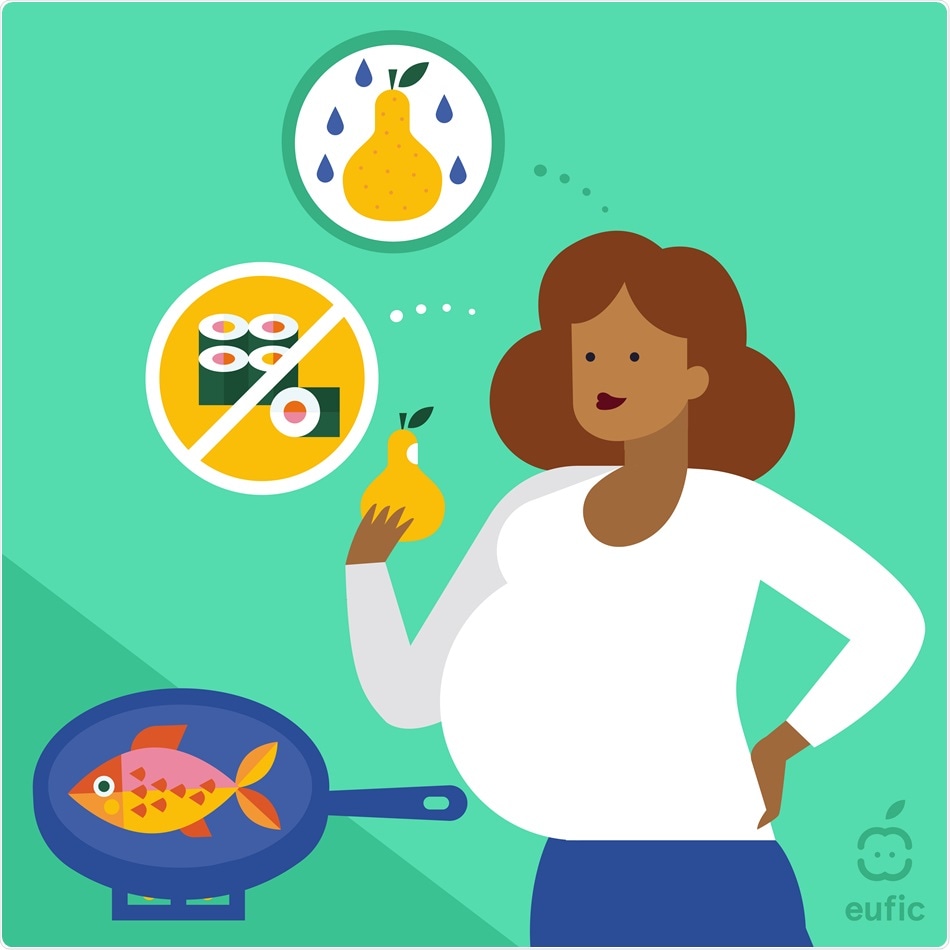Food facts for healthy eating during pregnancy & World Breastfeeding Week

Image Credit: European Food Information Council
- Healthy pregnancy: foods to avoid when pregnant
This article gives advice on which foods to avoid and how to choose safe alternatives.
- Healthy pregnancy: what foods to eat when pregnant
This article explains how to get the key vitamins and minerals needed during pregnancy to reduce the risk of pregnancy complications.
- Healthy weight gain during pregnancy
This article provides healthy options on how to increase calory intake during pregnancy considering a person’s body weight, as well as ways to stay physically active.
This article provides an overview of the benefits of breastfeeding and information about alternative feeding methods.
World Health Organization (WHO) 2025 Global Nutrition Targets
Healthy and balanced nutrition during pregnancy and early infancy is important for mother and child. However, despite some recent progress in Europe, there is still a long way to achieve the nutrition targets set by the WHO to improve maternal, infant and young child nutrition.
These include:
- 50% reduction of anemia in non-pregnant women of reproductive age
- 50% reduction of low birth weight
- No increase in childhood overweight
- Increase exclusive breastfeeding rates in the first six months of life to at least 50%
Current health challenges related to pregnancy nutrition
Current data shows that anemia still affects an estimated 22.7% of women of reproductive age. Poor nutrition and low micronutrient levels in pregnancy are also linked to higher risk of pregnancy complications and health conditions in the child at large: low levels of folate before or during pregnancy increase the risk of neural tube defects, low calcium intake during pregnancy can influence bone development in children, while low levels of Vitamin D during pregnancy are linked to pregnancy complications such as pre-eclampsia and gestational diabetes. A healthy and balanced diet, containing in all necessary micronutrients, is therefore particularly important during pregnancy.
Meanwhile, certain foods and drinks can increase the risk of harm to unborn babies, so knowing which foods to avoid and choosing safe alternatives are key to ensure both the mother and the baby’s health.
Data on breastfeeding
In addition, not a single country in the region is currently on course to meet the targets for exclusive breastfeeding among infants aged 0 to 5 months. Exclusive breastfeeding in the first 6 months of life reduces the risk of Sudden infant death syndrome (SIDS), asthma and gastrointestinal, ear and respiratory infections. In the long term, research has also linked breastfeeding to several other health benefits such as lower risk of developing diabetes and obesity in adulthood.
World Breastfeeding Week
On August 1-7 runs World Breastfeeding Week (WBW) that is aligned with the Sustainable Development Goals (SDGs) since 2016. In 2018, a World Health Assembly resolution endorsed WBW as an important breastfeeding promotion strategy. In 2021, the campaign will focus on how breastfeeding contributes to the survival, health and wellbeing of all, and the imperative to protect breastfeeding worldwide.